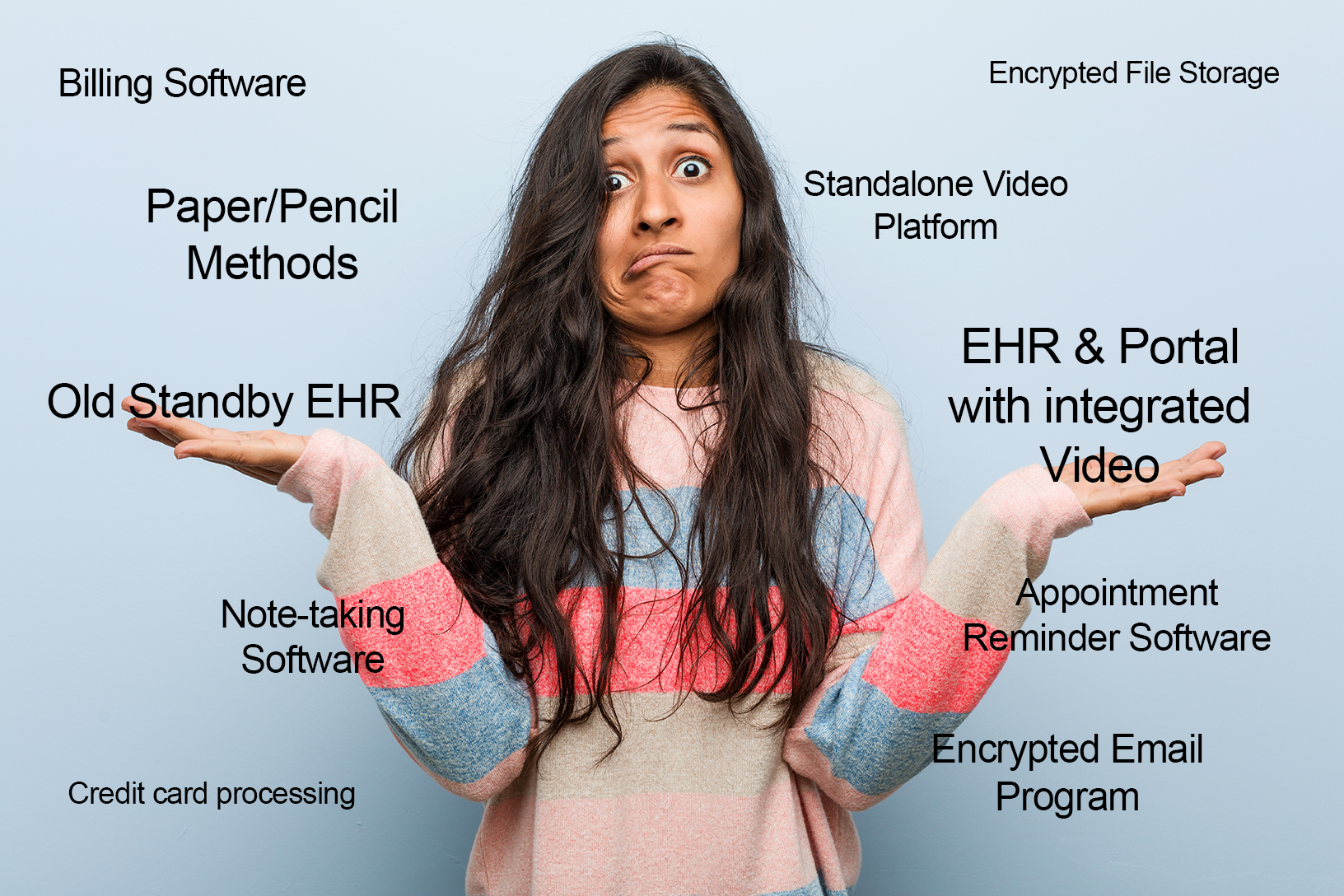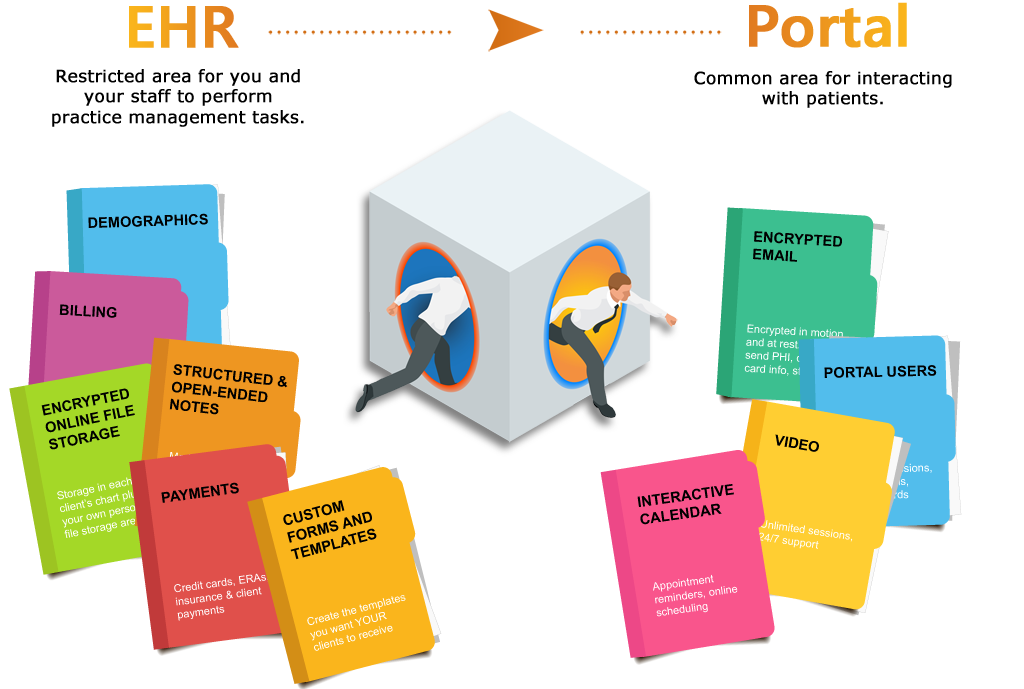Integrated Products for Mental Health: Save Time, Money, Errors
Mental health therapists are beginning to talk about wanting “integrated products” to help manage their practice tasks. But what do they mean by “integrated product?” More importantly, if you wanted to look at some, how would you go about finding them? Googling “integrated product” isn’t likely to produce the results you want.
One of the problems is that these types of products go by more than one name, which may be why people have begun referring to them as “integrated products.” Common names are Electronic Health Record (EHR), Electronic Medical Record (EMR) or Practice Management System. To complicate matters, just being called one of those titles doesn’t automatically mean the product is well-integrated.










